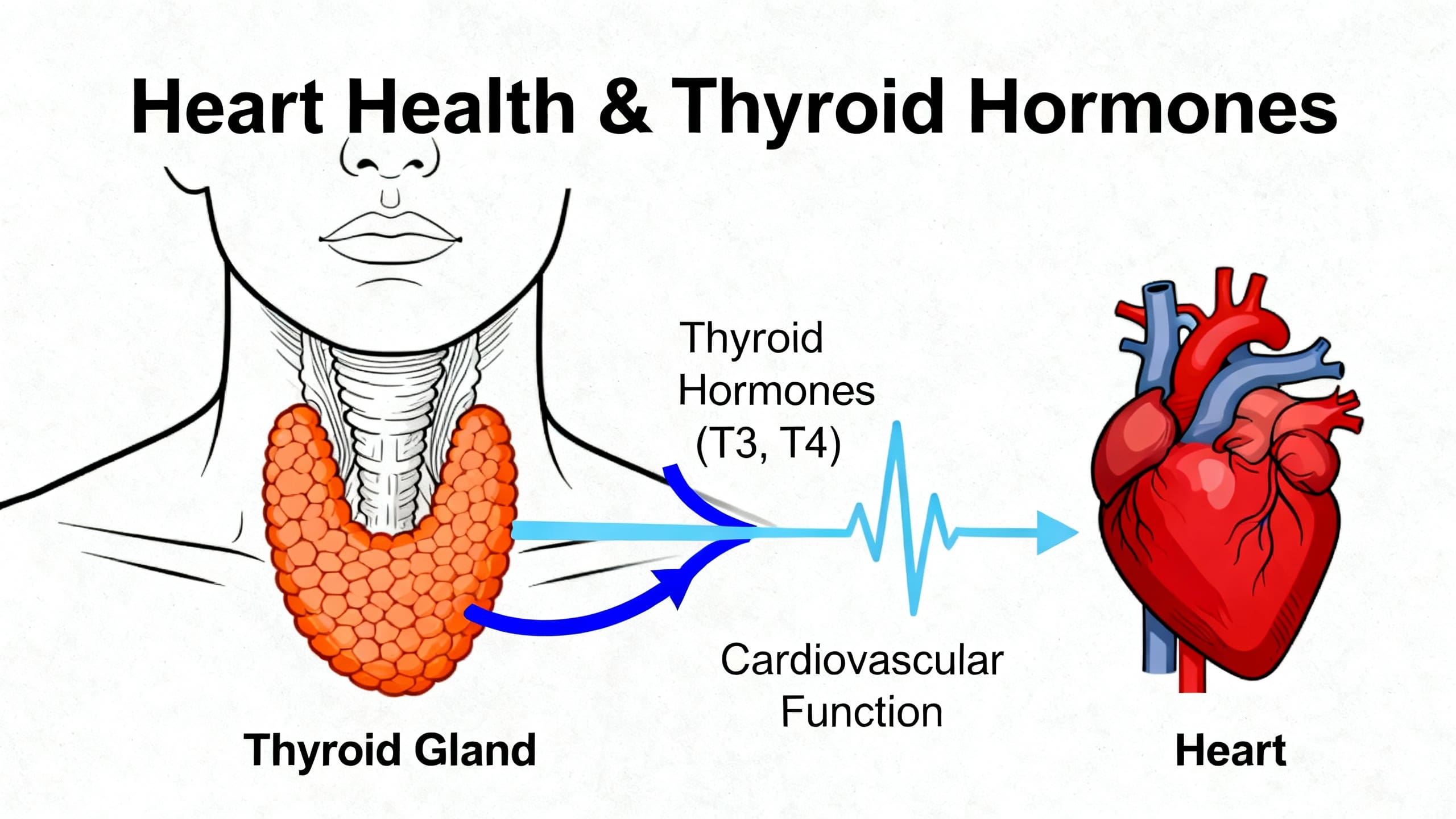Introduction
Thyroid hormones play a critical role in maintaining heart health and achieving an optimal heart. Imbalances in thyroid-stimulating hormone (TSH), whether low (hyperthyroidism) or high (hypothyroidism), can significantly impact heart rhythm (arrhythmias), blood lipids, metabolism, and even blood pressure. Whether you’re monitoring for arrhythmia or managing cholesterol, understanding the connection between your thyroid and heart health is essential. This article explores how thyroid issues influence your cardiovascular system, when to consider comprehensive thyroid panels, and practical steps for supporting an optimal heart.
What is Discuss thyroid hormones, arrhythmias, lipids, and when to request full panels.?
Thyroid hormones, primarily thyroxine (T4) and triiodothyronine (T3), are produced by the thyroid gland and regulated by TSH from the pituitary gland. They influence numerous metabolic processes, including heart rate, cholesterol metabolism, and blood pressure regulation. Abnormal TSH levels can disrupt this balance, resulting in symptoms from palpitations to elevated cholesterol (Biondi & Cooper, 2019; Kahaly, 2020).
Benefits and Outcomes in Heart Disease
Maintaining optimal heart health requires a balanced thyroid. Excess thyroid hormones (low TSH) can cause arrhythmias such as atrial fibrillation, raise blood pressure, and lower cholesterol at a cost of potential cardiac strain (Fatourechi, 2017). Conversely, insufficient thyroid hormones (high TSH) can slow heart rate, raise cholesterol and LDL, and increase risk of atherosclerosis (Gencer et al., 2021). Both extremes are linked to higher rates of heart failure and cardiovascular mortality (Jonklaas et al., 2014).
Research Insights
Recent clinical research underscores just how intertwined thyroid function and heart health are. Large cohort studies show that both overt and subclinical thyroid dysfunction raise cardiovascular risk (Chaker et al., 2017). Systematic reviews reveal increased arrhythmia and stroke risk in those with hyperthyroidism, while hypothyroidism correlates with elevated LDL and coronary artery disease (Kahaly, 2020). Clinical guidelines now recommend routine thyroid assessment in unexplained arrhythmias or worsening lipid panels to ensure optimal heart management (Jonklaas et al., 2014).
Practical Applications
Applying this knowledge for optimal heart health means requesting a full thyroid panel—including TSH, free T4, free T3, and thyroid antibodies—when unexplained arrhythmias, blood pressure changes, or lipid abnormalities are present (ATA, 2014).
- Diet: Ensure adequate iodine, selenium, and avoid excessive soy or cruciferous vegetables in those with thyroid disease (Biondi & Cooper, 2019).
- Supplements: Levothyroxine for hypothyroidism (under medical supervision); avoid over-the-counter thyroid stimulants.
- Lifestyle: Regular exercise, stress management, and avoiding tobacco benefit heart health and help maintain an optimal heart in thyroid patients (Kahaly, 2020).
- Monitoring: Those with established heart disease or risk factors should have annual thyroid function checks, or sooner if symptoms arise.
Risks & Limitations
There are important risks with both over- and under-treatment of thyroid conditions. Overtreatment can cause dangerous arrhythmias, while undertreatment increases cardiovascular disease risk (Fatourechi, 2017). Subclinical thyroid dysfunction’s impact on heart health is debated, with some studies showing minimal impact unless other risk factors are present (Chaker et al., 2017). Always consult a healthcare provider for diagnosis and management.
Key Takeaways
- Thyroid hormones profoundly impact heart rate, lipids, and blood pressure—key indicators of heart health.
- Low or high TSH can disrupt heart rhythm, cause arrhythmias, and raise long-term cardiovascular risk.
- Full thyroid panels are essential when evaluating unexplained arrhythmias or cholesterol changes.
- Balanced thyroid function supports an optimal heart and better cardiovascular outcomes.
- Both the risks of over- and under-treatment highlight the need for regular monitoring.
Frequently Asked Questions
1. Can thyroid problems cause arrhythmias or palpitations?
Yes, hyperthyroidism increases the risk of arrhythmias such as atrial fibrillation (Fatourechi, 2017).
2. Does hypothyroidism affect cholesterol?
Yes, hypothyroidism can cause elevated cholesterol and LDL, worsening heart health (Gencer et al., 2021).
3. When should I get a full thyroid panel?
If you have unexplained palpitations, changes in blood pressure, or abnormal cholesterol levels, a full panel is recommended (Jonklaas et al., 2014).
4. Are there lifestyle changes that help both thyroid and heart health?
Yes: A balanced diet, regular exercise, and avoiding tobacco support an optimal heart in thyroid patients (Kahaly, 2020).
Suggested Links
- American Heart Association: Thyroid Disease and Heart Health
- NIH: Thyroid and Heart Health
- PubMed: Thyroid and Cardiovascular Research
Conclusion
Recognizing the strong link between thyroid function and cardiovascular health can empower you to protect your heart health and aim for an optimal heart. Routine screening, healthy lifestyle choices, and timely management of thyroid imbalance all help prevent arrhythmias and cardiovascular complications. If you notice changes in your pulse, blood pressure, or cholesterol, consult your healthcare provider and ask about a full thyroid panel—your heart will thank you.



